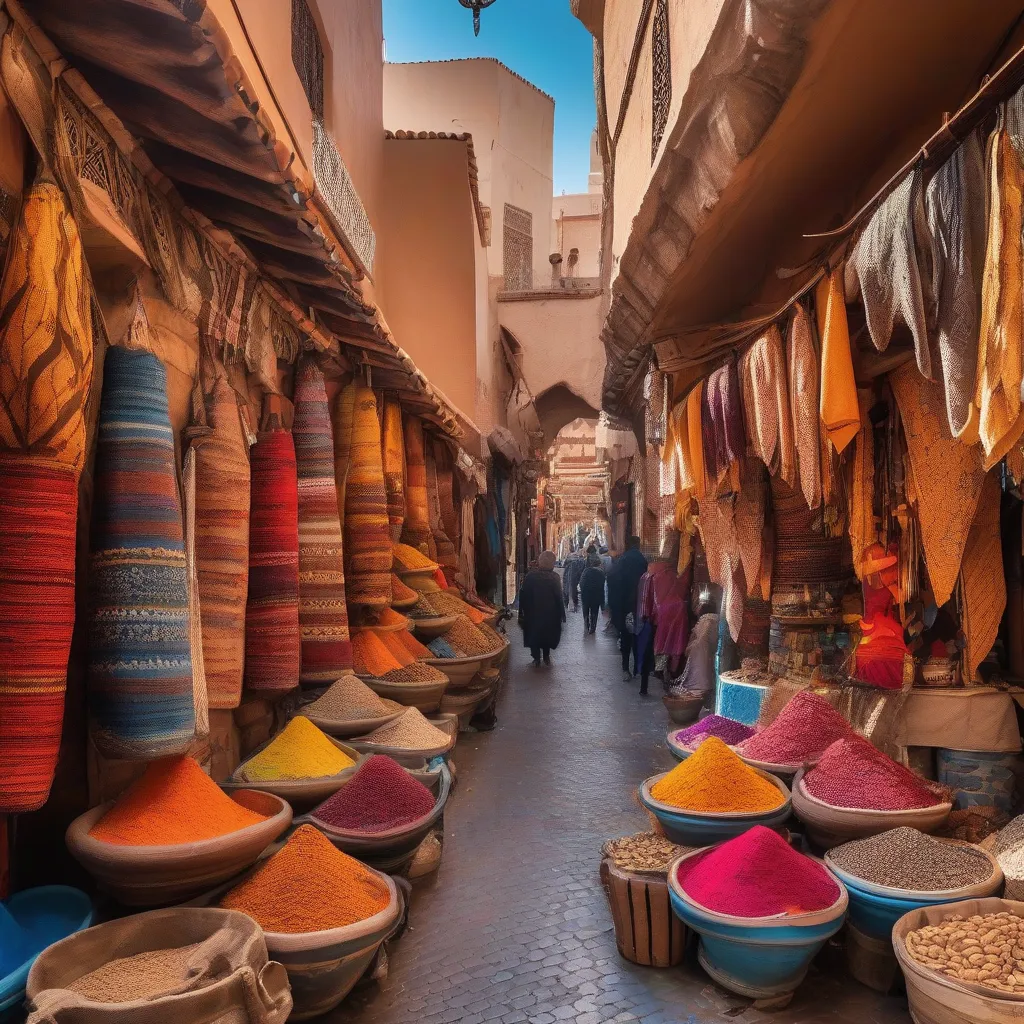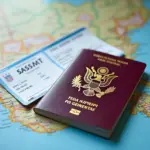Have you ever felt the urge to just pack a bag and go? To explore the unknown, embrace new cultures, and witness the world’s wonders firsthand? For Ibn Battuta, a 14th-century scholar from Tangier, Morocco, this wasn’t just a fleeting feeling; it was a calling that led him on an epic 30-year adventure across the globe. But what sparked this insatiable wanderlust? What inspired him to embark on a journey that would span over 75,000 miles, traversing continents and cultures?
The Call to Adventure: More Than Just a Pilgrimage
While Ibn Battuta’s initial journey began as a pilgrimage to Mecca, a fundamental pillar of Islam known as the Hajj, his motivations extended far beyond fulfilling a religious obligation.
A Thirst for Knowledge and Exploration
Imagine the allure of the unknown, the desire to witness firsthand the diversity of the world described in ancient texts and whispered tales. This thirst for knowledge was a driving force for Ibn Battuta. As a scholar of Islamic law (fiqh), he was eager to deepen his understanding of different legal schools of thought and immerse himself in the rich tapestry of Islamic culture across the world.
The Spirit of Adventure and Curiosity
Like many adventurers before and after him, Ibn Battuta possessed an innate curiosity and an adventurous spirit. The thrill of discovering new lands, encountering diverse cultures, and experiencing the unknown was irresistible. He wasn’t content with merely reading about the world; he wanted to live it.
The Journey Unfolds: A Tapestry of Experiences
Ibn Battuta’s travels weren’t just about ticking off destinations; they were about embracing the journey itself. He traversed harsh deserts, sailed treacherous seas, and navigated bustling cities, encountering a myriad of people from all walks of life.
From Mecca to the Far East and Back
His travels took him far beyond the familiar landscapes of North Africa. He journeyed through the Middle East, explored the bustling markets of India, sailed down the Nile, and even ventured to the distant lands of China, documenting his experiences in vivid detail. His writings offer a captivating glimpse into the social, cultural, and political landscapes of the 14th century, providing invaluable insights into the world he encountered.
A Legacy Forged in Travel
Ibn Battuta’s journey wasn’t without its challenges. He faced storms, illnesses, and even shipwrecks. Yet, he persevered, driven by his insatiable thirst for knowledge and adventure. His experiences transformed him from a young scholar into a seasoned traveler, a keen observer of humanity, and ultimately, a legendary explorer whose name echoes through history.
 Portrait of Ibn Battuta
Portrait of Ibn Battuta
Unpacking the Significance: Ibn Battuta’s Impact
Ibn Battuta’s epic journey wasn’t just a personal odyssey; it holds immense historical and cultural significance, offering a window into a world on the cusp of change.
A Bridge Between Cultures
His travels fostered cultural exchange, facilitating the sharing of ideas, knowledge, and traditions across vast distances. He served as a conduit between the East and the West, documenting the diversity of the Islamic world and fostering understanding between different cultures.
A Testament to Human Curiosity
Ibn Battuta’s legacy serves as a timeless reminder of the power of human curiosity and the allure of the unknown. His story continues to inspire travelers, adventurers, and dreamers alike, encouraging us to embrace the transformative power of travel and to approach the world with open minds and hearts.
Planning Your Own Journey of Discovery
Inspired by Ibn Battuta’s incredible journey? You too can embark on your own adventure, exploring the world and creating unforgettable memories.
Chart Your Course
Whether you’re drawn to the ancient ruins of Greece, the vibrant markets of Marrakech, or the serene temples of Japan, the world is your oyster. Research destinations that resonate with your interests, plan your itinerary, and prepare to be amazed by the beauty and diversity our planet has to offer.
 Bustling Moroccan Souk
Bustling Moroccan Souk
Embrace the Unexpected
Remember that travel is as much about the journey as it is about the destination. Embrace the unexpected detours, the chance encounters, and the moments that take you by surprise. These are often the experiences that create the most lasting memories.
FAQs: Delving Deeper into Ibn Battuta’s World
Q: How did Ibn Battuta travel such vast distances?
A: Ibn Battuta relied on a combination of transportation methods common during his time, including camels for desert crossings, ships for sea voyages, and horses or donkeys for overland journeys. He often joined caravans for safety and companionship.
Q: Did Ibn Battuta face any dangers during his travels?
A: As with any adventurous journey, Ibn Battuta encountered his share of perils. He faced treacherous storms at sea, harsh desert conditions, and even political unrest in some regions. However, his resilience and determination allowed him to overcome these challenges and continue his explorations.
Q: What can we learn from Ibn Battuta’s journey today?
A: Ibn Battuta’s story teaches us the importance of embracing curiosity, seeking knowledge beyond our familiar surroundings, and approaching the world with an open mind. His legacy reminds us that travel has the power to broaden our horizons, challenge our perspectives, and connect us to the shared human experience.
Embark on Your Own Adventure with Travelcar.edu.vn
Ready to embark on your own journey of discovery? Visit TRAVELCAR.edu.vn for travel inspiration, tips, and resources to help you plan your next adventure. From exploring the ancient ruins of Angkor Wat to wandering the bustling streets of Hanoi, let TRAVELCAR.edu.vn be your guide to unforgettable experiences.

